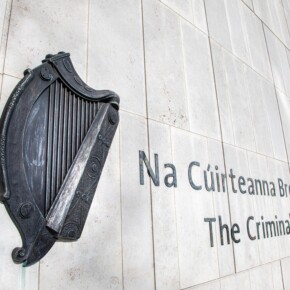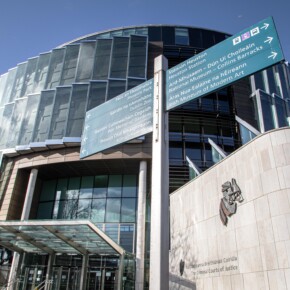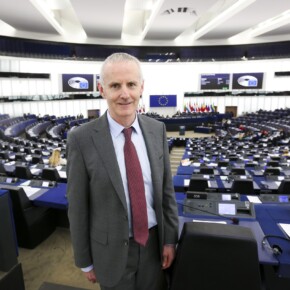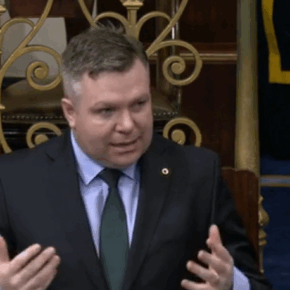Doherty criticises “authoritarian” cycle lane plan
Mike Finnerty 24 Jul 2024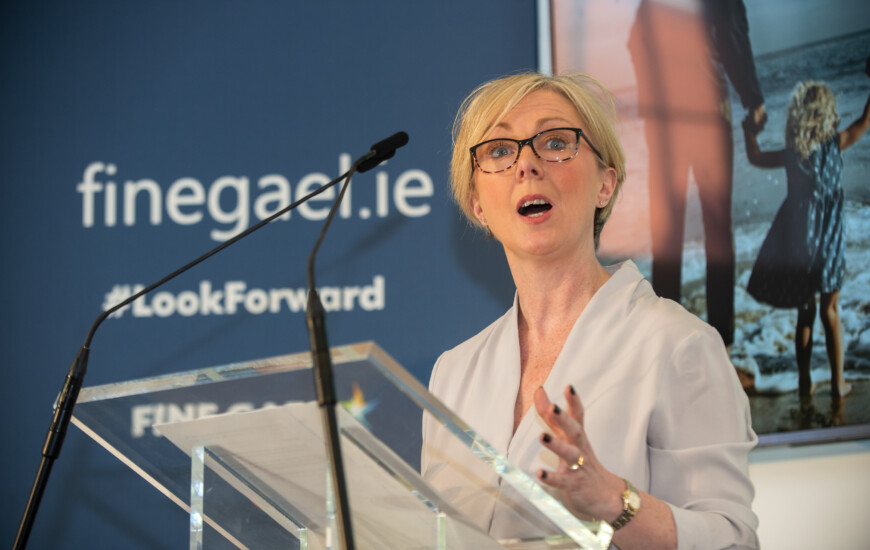
Fine Gael MEP Regina Doherty has defended comments where she said the Green Party has made Dublin resemble East and West Berlin following their implementation of bike infrastructure.
In the lead-up to June’s local and European elections, Doherty gave an interview to the Irish Mail On Sunday where she said the Greens “have turned Dublin into a spaghetti junction of cycle lanes that have divided the city like East and West Berlin.”
In the same interview, she criticised what she called “Green arrogance” and their “autocratic style of government.”
“They talk down to people when they should consult with them,” she said in the interview, which was greeted with bemusement and concern within the Greens.
Doherty was speaking in the run-up to the European elections, saying a vote for Fine Gael would serve as a railguard against the Greens in Europe.
“We need a credible watchdog in Europe to mark the Greens on climate change; The Greens currently are doing more harm than good to the climate change agenda,” she said.
Ironically, Fine Gael’s European parliament grouping, the European People’s Party, needed the support of the Greens’ European grouping to secure a second term for EU Commissioner Ursula Von Der Leyen.
Doherty’s June interview raised tensions between Fine Gael and the Greens, with then-leader Eamon Ryan saying he “fundamentally disagreed” with Doherty’s comments.
In an interview published by The Journal last week, Doherty conceded her statement was “clumsily worded” but she stood by the principle of it.
“I will admit, what I said might’ve been clumsily put; but the premise of what I said, I still absolutely firmly believe in,” she told the outlet.
She claimed she was “totally empathic to cyclists,” saying that members of her family are cyclists.
“I’ve been living with cyclists all my married life and my life as a parent,” she said.
“The problem I have is that the authoritarian way we’ve been imposing cycle lanes on some communities has totally divided communities – and Dún Laoghaire is the one I pointed to. That’s not something that would’ve been privy to me,”.
The “authoritarian” cycle lane plans that Doherty refers to were implemented when Doherty’s own Fine Gael were the biggest party on Dún Laoghaire-Rathdown Council between 2019 and 2024 holding 13 of the 21 seats needed for a majority.
The cycle lane plans were implemented after an extensive, months-long public consultation process.
She cited the example of Ashbourne in County Meath where millions of Euro have been spent on building cycle paths which she notes have “yet to be completed” or “are consistently parked in.”
The project which Doherty refers to happened during the 2019 to 2024 term of Meath County Council, where Fine Gael and Fianna Fáil were the biggest parties on the council with 12 seats apiece, with no Green candidates elected.
“We’re in such a hurry to tell everyone they have to be on their bicycles that what we’ve done is imposed cycling infrastructure that, in some cases, is dangerous.”
She claims that the implementation of bike routes has “divided communities as opposed to bringing people with us.”
Doherty has also spoken out against the Dublin City Centre Traffic plan, which is still dividing opinion among Dubliners.
In a statement in May, Doherty said “Dublin city centre should be open to all the people who live in Dublin. Instead, the details of Dublin City Council’s new transport management plan will make it harder to drive in town for those who live there, increase traffic congestion on our roads, and further increase commuting times for people who travel into Dublin on a daily basis.”
A protest was held outside Brown Thomas on Grafton Street on Saturday, July 13 after it emerged that the outlet had commissioned an economic report which claimed that the implementation of the traffic plan would be “bad for business.”
Una Morrison of the Dublin Cycling Campaign told the Irish Times that Brown Thomas’ report works on the notion that customers visiting Dublin city centre were travelling in by car.
“The majority of people who are travelling and stopping in the city centre are travelling by public transport, cycling and walking,” she told the newspaper.
Social Democrats councillor Eoin Hayes has called for the “fearmongering” surrounding the Dublin City Centre Traffic Plan to “stop.”
Hayes, who was elected in June in Kimmage-Rathmines, said the economic assessment laid out by Dublin City Centre Traders’ Alliance “does not take into account the significant costs to the capital caused by traffic congestion and underestimates the footfall increases from a thriving city core devoid of gridlock.”
Hayes questioned the motive of DCCTA only producing the report, 7 months after a public consultation process with nearly 3,600 submissions ended.
The public consultation process was open from September until December of last year, but the DCCTA were not among the organisations to make a submission.
“Their conclusions are not consistent with the experience of other European capital cities, where reduced traffic has led to an uptick in economic activity and retail revenues,” he said.
Hayes, a small business owner himself, said “the real threat to retail is coming from online shopping, we need to give people more reasons to do business in the city.”
He said that the traffic plan, which looks to ease traffic congestion, will provide “better public transport and increasing pedestrianisation will help boost footfall in Dublin and improve air quality, as well as a boon to our international reputation as a tourist destination.”
“Our tourists – on whom most retailers in Dublin rely – want to come to a destination with a European quality of life, with activities for people and beautiful open spaces – not a city dominated by cars and car parks.”
In a separate interview with the Irish Times, Dublin City Council boss Richard Shakespeare says he expects a final decision to be made on the traffic plan by the end of July.


